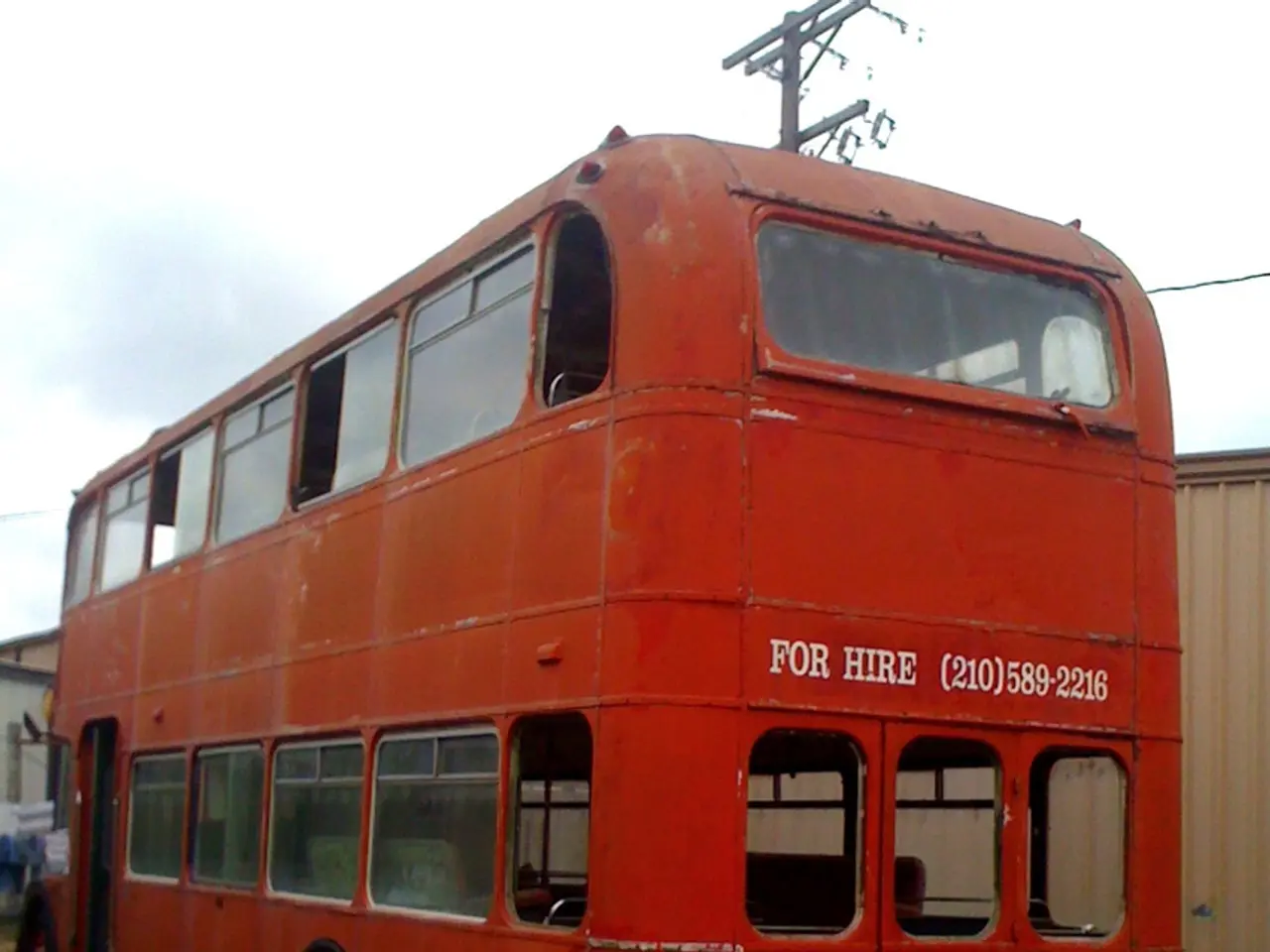Electrically-Powered Redesign of Double-Decker Tour Buses in Cologne
In an important step towards CO2-free mobility, 18 double-decker sightseeing buses operated by Willms Touristik have been converted from diesel to electric power. This project, funded by the German Federal Ministry for Digital and Transport, is crucial for the future viability and profitability of Willms Touristik, as diesel buses are expected to be banned from driving in German city centres in a few years' time.
The conversion was carried out by the Danish specialist company Banke ApS in coordination with DGS Diesel-und Getriebeservice, the German general representative of Allison Transmission. Each vehicle's diesel engine, fuel system, and conventional transmission were removed and replaced with a DANA TM4 SUMO HP electric motor and an Allison T280R fully automatic six-speed transmission.
The new system provides a continuous power of 145 kW, and six lithium iron phosphate battery packs, with a total capacity of 240 kWh, give the buses a range of about 200 kilometres. Because of their open-top design, the battery packs were installed at the rear and within the passenger compartment, reducing seating capacity by two to six seats, depending on the model.
The repowering of double-decker buses to electric power is expected to result in reduced maintenance costs. The lower maintenance costs of electric drivetrains are a result of fewer wear-prone components. In fact, maintenance costs for electric buses are projected to be lower, with an estimated operating cost per kilometre of 0.33 EUR, compared to 0.60 EUR for diesel buses.
Electric buses are also expected to have lower operating costs compared to diesel buses. This project is an important step towards CO2-free mobility, as the conversion of double-decker buses to electric power contributes to the reduction of greenhouse gas emissions and promotes sustainable transportation.
These buses are now in service in Cologne and other German cities, providing tourists and locals with a greener and more eco-friendly way to explore the cities. The success of this project could pave the way for the widespread conversion of bus fleets to electric power, furthering Germany's commitment to reducing its carbon footprint and promoting sustainable transportation.
Read also:
- Nightly sweat episodes linked to GERD: Crucial insights explained
- Antitussives: List of Examples, Functions, Adverse Reactions, and Additional Details
- Asthma Diagnosis: Exploring FeNO Tests and Related Treatments
- Unfortunate Financial Disarray for a Family from California After an Expensive Emergency Room Visit with Their Burned Infant








